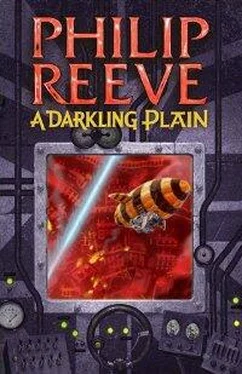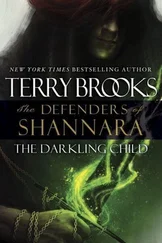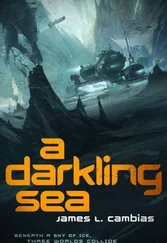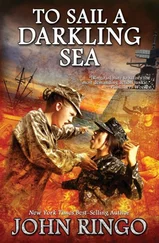“They didn’t muck about, those Ancients.”
“Was Lurpak right? Is it really up in orbit somewhere?”
“It’s possible,” said Pomeroy. “There is all sorts of stuff still circling up there. The old records list a few weapons that the Ancients were supposed to have hung in heaven. The Diamond Bat, Jinju 14, the Nine Sisters, ODIN. Most of them must have been destroyed in the Sixty Minute War, or fallen out of the sky in all the millennia since. But I suppose it’s possible that one’s still up there, and Naga’s people have managed to awaken it.”
“ODIN,” said Tom. “I’ve heard that name somewhere…”
“Quirke preserve us! You must have actually been paying attention during one of my lectures, Natsworthy!” chuckled Pomeroy, but he sounded weary, and Tom started walking again, thinking that it could not be good for the old Historian to be hanging about here in the chill air. The white light had gone now, anyway; there was nothing to see but a sinister, reddish glow in the west.
“The name stood for Orbital Defense Initiative,” Pomeroy said as they strolled on together. “It was part of the American Empire’s last, furious arms race with Greater China. I wonder where on earth our Mossie friends dug up the access codes.”
“Quirke Almighty!” Tom said suddenly, with such concern in his voice that Pomeroy stopped again and turned to peer at him.
“Everything all right, Natsworthy?”
“Yes,” said Tom, but he was lying. He had remembered why the name ODIN sounded familiar. That had been the only legible word among the thousands of numbers and symbols scratched on the pages of the Tin Book of Anchorage, the relic that Wren had helped the Lost Boys steal from Vineland. Tom had almost forgotten about the book; he had assumed it was destroyed when Cloud 9 fell. Naga’s people must have taken it with them to Shan Guo, and used it to arouse the dreadful weapon in the sky.
“Please,” he said, “don’t mention any of this to Wren.”
Pomeroy chuckled again and nudged him. “Don’t want to spoil her romance, eh? Don’t blame you, Natsworthy. It’s good to see that our young people are getting on with the serious business of falling in love with each other, despite all these trivial distractions. And I like that Theo Ngoni. They’ll be good for each other.”
“If they live through this,” said Tom. “If any of us do.”
“The forces of History will decide that,” said Pomeroy. “I’ve studied History all my life, and the one thing I’ve learned for certain is that you can’t stand against it. It’s like a river in flood, and we are just swept along in it. The big people, like Naga, or those Traktionstadt fellows, may try to swim against the current for a time, but little people like us, the best we can hope for is to keep our heads above water for as long as we can.”
“And when we go under?” asked Tom. “What then?”
Pomeroy laughed. “Then it’s someone else’s turn. Your daughter and her young man, for instance. A London Historian’s daughter and an Anti-Tractionist. Maybe they’re the future.”
They were drawing close to his comfortable little book-lined hut. As he turned and took Tom’s hand, Tom said suddenly, “Mr. Pomeroy, if anything happened to me, you would look after Wren, wouldn’t you?”
Pomeroy frowned. He seemed about to say something flippant but then realized how serious Tom was, and nodded instead. “Wren has Theo to look after her,” he said. “But yes, I’d do my bit, if she needed me. So would Clytie; so would every other Londoner. You needn’t worry about her, Tom.”
“Thank you.”
They stood for a moment side by side. Then Pomeroy said, “Well, good night, Apprentice Natsworthy.”
“Good night, Lord Mayor. You’re sure …”
“Don’t fuss,” said Pomeroy amiably. “I’m perfectly capable of putting myself to bed. And don’t worry too much about the Storm, or Harrowbarrow, or any of the rest of it. London can take it.”
He shambled off, and Tom went slowly home to his own hut, where Theo was to be staying now as well. But as he reached the door, he heard Wren’s and Theo’s voices inside, where they must be waiting for him to return. They were talking too softly to make out any words, but he knew what they were saying. They were telling each other all the things he and Hester had told each other once; all the things that lovers had always said to one another, imagining that they were the first people ever to say them.
Not wanting to interrupt, Tom turned away and went out into the open air again. He walked up into the rust hills, going slowly to spare his heart. The western sky looked bruised. I ought to do something, he thought. I have done so little for New London; just brought trouble, really. I should try to do something about this. It’s my responsibility in a way; a family matter. But how could I hope to stop ODIN? I don’t even know where the Storm control it from…
And then he thought, I might not be able to stop ODIN, but perhaps I could stop them using it on New London.
General Naga was a good man—Wren had often spoken about how he had treated her on Cloud 9; how fair and civilized he’d been. Perhaps he was using the weapon only because he was scared, and desperate. Perhaps he was the sort of man who would listen to reason. If he could meet a Londoner, and hear firsthand about New London, surely he would understand that the Storm had no cause to fear it?
Tom was shaking so much that he had to sit down. Could it be done? He supposed it could. There was fuel enough in the Jenny Haniver’s tanks to reach Batmunkh Gompa. And then he remembered Theo telling him how Hester had rescued Lady Naga. Was she in Shan Guo, even now? Might she be able to help persuade General Naga to listen to what Tom had to tell him?
He walked back to Crouch End. He had been gone far longer than he’d realized; Wren and Theo had fallen asleep waiting for him. Tom went quietly past them to his pack, found paper and a pencil, and wrote a letter for his daughter. He left it beside her and stood looking down at her for a while, listening to her breathe, watching the small, sleeping movements of her fingers, just as he used to when she was a baby. He kissed her forehead, and she smiled in her sleep and snuggled closer to Theo.
“Night night, little Wren,” Tom said. “Sleep tight. Sleep tight.”
Then he went out of the hut and shouldered his pack and left Crouch End, heading for the Holloway Road and the place where the Jenny Haniver was moored.
On the plains west of London, Wolf Kobold stood on his favorite observation post, up on Harrowbarrow’s armored spine. The harvester was stationary, buried in a long hill of loose shale with just a few well-camouflaged gun emplacements and watchtowers protruding. It had traveled only by night since it broke away from the Murnau pack, for although the Green Storm’s armies were collapsing, these lands were still enemy territory; Wolf did not want his trip to London interrupted by any foolish battles.
But tonight, as the suburb prepared to move, a different sort of interruption had occurred.
Wolf swung his field glasses and counted seven … nine … twelve immense bonfires blazing in the west. He was too young to remember MEDUSA, but that was the name that came into his mind. His lookouts—trusted men—had reported a blade of light striking down from the sky and setting off those firestorms. He tilted his head, staring at the stars. They looked innocent enough now.
A nearby hatch squeaked open. Hausdorfer emerged.
“Well?”
“Talked to the radio boys,” said Hausdorfer. “They’ve been trying Manchester, Winterthur, Koblenz. Nothing. Some kind of distress signal from Dortmund, then they went dead too.”
Читать дальше












